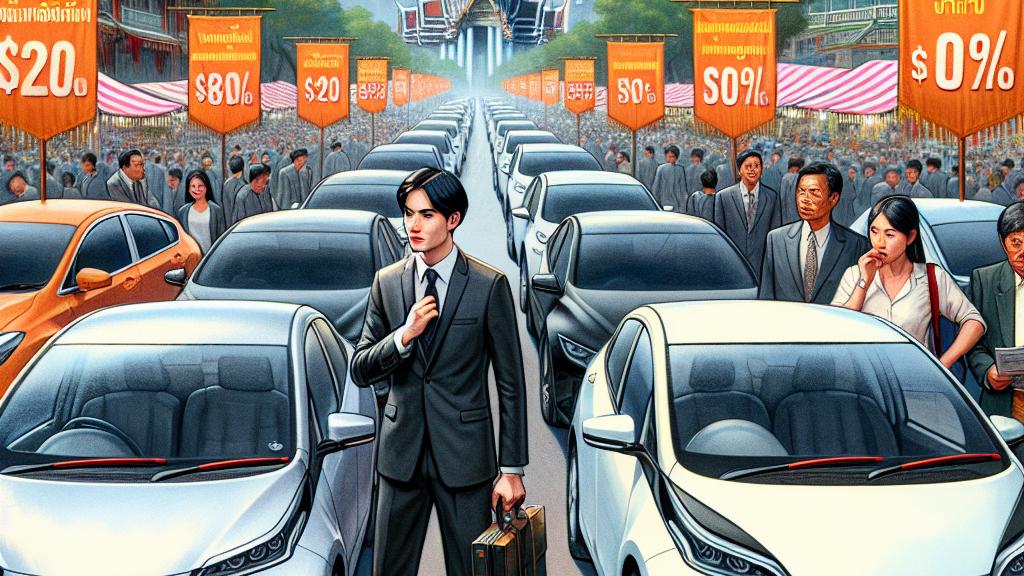EV Armageddon: How Low Can They Go in Thailand?
Overview
- Chinese EV manufacturers are aggressively slashing prices, causing a stir in Thailand's automotive market.
- Early adopters are feeling deceived as their vehicle values plummet due to hefty discounts.
- The Thai government is pushing to establish the country as a top-tier EV production hub amid fierce competition.

The Price War That Is Changing Thailand's Auto Landscape
In a bold move, the electric vehicle (EV) market in Thailand is experiencing a disruptive price war, spearheaded by Chinese manufacturers such as BYD and other emerging brands. These companies are offering significant discounts on their models, which has led to frustration among early adopters who feel they overpaid for their vehicles. For instance, BYD's price reductions have triggered an investigation, highlighting the tension between consumer expectations and aggressive pricing strategies. As Thailand endeavors to become a major player in the global EV market, the competition from these budget-friendly options is forcing traditional automakers, especially Japanese brands, to reconsider their pricing and product strategies to keep up with the ongoing evolution in consumer preferences.
Financial Repercussions for Consumers and Institutions
The impact of these price cuts extends beyond individual consumer frustration; it is reshaping the financial landscape of the automotive sector in Thailand. Vehicle owners who purchased at higher prices are witnessing a rapid depreciation of their investments, complicating the resale process. This troubling trend puts a strain on financing institutions, as individuals may find themselves in negative equity situations. For example, if a consumer owes more on a loan than their vehicle's current market value, it can lead to defaults, increasing risks for lenders. The Thai government's efforts to establish the nation as a premier EV hub face additional challenges as consumers navigate these new price realities, which can lead to hesitancy in new purchases and longer-term implications for the market's growth.
The Future of the Auto Industry in Thailand: Adaptation and Innovation Needed
The trajectory for EV pricing in Thailand is shaped by various factors, including significant advancements in battery technology and economies of scale that promise to drive costs even lower. According to BloombergNEF, the average cost of lithium-ion batteries has seen a steep decline, falling 89% between 2010 and 2020. This trend not only aligns with greater consumer acceptance of EVs but also demands that traditional automakers innovate rapidly to maintain relevance. Japanese companies, which previously dominated, are now in a race against time to adapt to this price-sensitive environment. As these changes unfold, Thailand stands at a crossroads—either to cement its status as an EV powerhouse or to face the risks of losing ground to more nimble competitors. The evolving market will demand a balance of strategic pricing, innovation, and consumer engagement to ensure sustainable growth in the electric vehicle sector.

Loading...